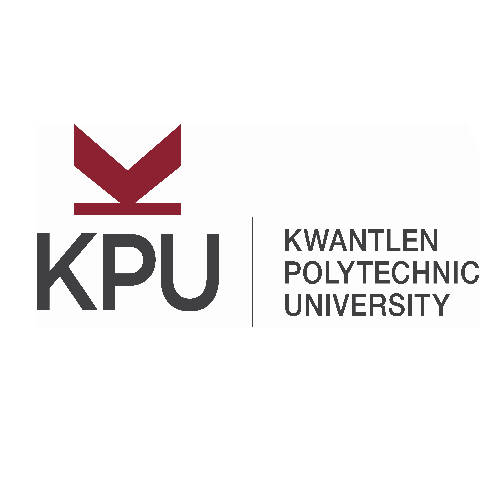• Australia
A Guide to Post Secondary Australian Education System for International Students
5213 Reads
3 min Read
Australia’s education system ranks among the world’s finest, attracting millions of international students annually. Renowned for their high standards and expert educators- it is essential for aspiring students to stay updated. This blog is a guide for students aspiring to study in Australia, how the education system works and much more.
Australian Qualification Framework (AQF)
Higher Education in Australia
University Education
Vocational Education and Training (VET) in Australia
The Australian Skills Quality Authority (ASQA)
| Bachelor's | VET |
| Starts late January to early February | Starts late February to early March |
| Takes a minimum of 3-4 years full time to complete | Can take anywhere between 6 months to 2 years |
| The fees are on a higher end | Cost effective |
How does the Australian education system differ from other countries?
Australian education System in comparison to Indian Education system
| Aspect | Australian Education System | Indian Education System |
| Academic Focus | Competency based | Content based |
| Academic Intake | 2 intakes primary: February/March Secondary : July/August | Most Indian institutes only have one annual intake starting June/July. |
| Curriculum | Freedom customise course options, choose elective subjects and transfer credits | Mostly fixed curriculum with limited elective and credit transfer options |
| Evaluation Methods | Diverse assessment methods, throughout the semester. | Final exams often carry significant weightage over practical assessment. |
Academic intakes in Australia
Conclusion
FAQ
Get great articles direct to your inbox
The latest news, articles, and resources, sent straight to your inbox every month.
Popular Universities to Study Abroad
World class education waiting for you.

Global University Systems (GUS) - University of Europe for Applied Sciences - Iserlohn Campus
North Rhine-Westphalia, Germany • 19 Programmes
Tuition Fee : EUR 12700-12700 / year

St. Clair College - Chatham Campus
Ontario, Canada • 13 Programmes
Tuition Fee : CAD 11500-15500 / year

Buckinghamshire New University - Aylesbury Campus
England, UK • 1 Programmes
Tuition Fee : GBP 14000-20000 / year

Kwantlen Polytechnic University - Tech Campus
British Columbia, Canada • 6 Programmes
Tuition Fee : CAD 21000-34500 / year

.png)
Shorelight Group - Washington and Jefferson College
Washington, USA • 31 Programmes
Tuition Fee : USD 28000-29000 / year
.png)
Trinity Western University - Richmond Campus
British Columbia, Canada • 5 Programmes
Tuition Fee : CAD 0-0 / year

Coventry University - London Campus
England, UK • 43 Programmes
Tuition Fee : GBP 16800-16800 / year
Popular English Language Proficiency Exams
Blogs and Articles
Curated content to keep you updated on the latest education trends, news and more.
Updated on • Jul 17,2025 05:33 PM IST • USA
PTE Accepted Universities in Australia
Updated on • Jul 17,2025 05:09 PM IST • PTE
Part-Time Jobs for International Students in Australia
Updated on • Jul 17,2025 03:44 PM IST • Australia
Updated on • Jul 12,2025 04:02 PM IST • USA
Updated on • Jul 11,2025 11:32 AM IST • Education
CPT vs OPT: Meaning, Difference, and How to Apply
Updated on • Jul 11,2025 10:40 AM IST • USA
Masters in Computer Science in UK: Top Colleges, Eligibility, Scholarships
Updated on • Jul 10,2025 11:29 AM IST • study in the UK
Highest Paying Jobs in the World
Updated on • Jul 08,2025 01:40 PM IST • Study Abroad
MBA in Australia for Indian Students: Best Universities, Requirements, Scholarship, Courses, Jobs
Updated on • Jul 08,2025 01:35 PM IST • Australia
Canada vs Australia: Which Country is Better for Indian Students in 2025?
Updated on • Jul 07,2025 12:46 PM IST • Education
France vs Germany: Which Is Better for International Students?
Updated on • Jun 30,2025 05:15 PM IST • Education
Top 10 Agricultural Universities in USA
Updated on • Jun 27,2025 05:25 PM IST • USA
Most In-Demand Future Careers in 2025
Updated on • Jun 26,2025 04:41 PM IST • Education
How Much Do Nurses Make in the U.S.?
Updated on • Jun 23,2025 03:59 PM IST • USA
Updated on • Jun 21,2025 02:00 PM IST • USA
MBA in UK: Universities, Eligibility, Types, and Career Opportunities
Updated on • Jun 19,2025 04:09 PM IST • UK • study in the UK
Scholarships in France for Indian Students
Updated on • May 29,2025 05:22 PM IST • France
Intakes in Dubai for Indian Students
Updated on • May 27,2025 03:34 PM IST • Study in Dubai
France Student Visa 2025 – Requirements, Fees, Checklist & Application Process
Updated on • May 23,2025 03:36 PM IST • France
MBA in France for Indian Students in 2025
Updated on • May 22,2025 05:35 PM IST • France
Related Blogs and Articles
A little effort to provide an authentic and reliable content for keen readers!!
Part-Time Jobs for International Students in Australia
Updated on • 17-07-2025 • Australia
MBA in Australia for Indian Students: Best Universities, Requirements, Scholarship, Courses, Jobs
Updated on • 08-07-2025 • Australia
MBBS in Australia: Top Universities, Syllabus, Cost of Study, Eligibility, Scholarships & Jobs
Updated on • 22-05-2025 • Australia
MBA Finance in Australia: Universities, Eligibility, Scholarships and Job Opportunities
Updated on • 28-04-2025 • Australia
Facts to Know Before Studying in Australia
Updated on • 28-04-2025 • Australia
Masters in Project Management in Australia
Updated on • 25-02-2025 • Australia
Public Relations (PR) Courses in Australia
Updated on • 07-02-2025 • Australia
February Intake in Australia: Timeline, Courses, Universities, Deadlines & More
Updated on • 01-02-2025 • Australia
What makes Australia a preferred study destination for Indians?
Updated on • 10-01-2025 • Australia
Updated on • 20-12-2024 • Australia
Bachelor of Nursing Courses in Australia
Updated on • 30-11-2024 • Australia
Post Study Work Permit in Australia
Updated on • 18-11-2024 • Australia
Australia Study Visa - Requirements, Process, Fee, How to Apply & More
Updated on • 08-10-2024 • Australia
Highest Paying Jobs in Australia for International Students
Updated on • 23-09-2024 • Australia
Study Intakes in Australia for International Students
Updated on • 23-09-2024 • Australia
Why Australia is Better Than Other Countries for Study?
Updated on • 11-09-2024 • Australia
Master of Social Work (MSW) in Australia
Updated on • 10-08-2024 • Australia
Top 10 Benefits of Studying in Australia for Indian Students
Updated on • 15-07-2024 • Australia
Australian Student Visa Interview Questions and Answers
Updated on • 11-07-2024 • Australia
Why should you Study Civil Engineering in Australia?
Updated on • 28-06-2024 • Australia












